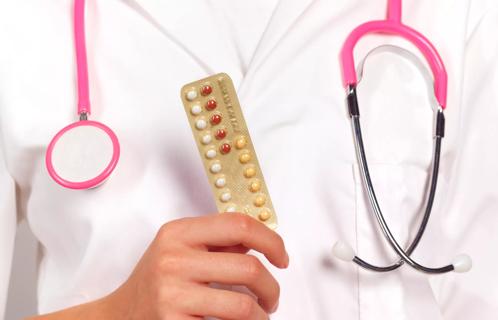Everything you need to know about going off the pill

Whether you’re looking to get pregnant or quitting for medical reasons – many women stop taking the pill and don’t know what to expect or be aware of. Whatever your reason, you might experience a few hormonal and bodily changes as you return to your natural cycle.
Advertisement
Cleveland Clinic is a non-profit academic medical center. Advertising on our site helps support our mission. We do not endorse non-Cleveland Clinic products or services. Policy
“Keep in mind that the pill is a type of hormonal medication,” explains Ob/Gyn Salena Zanotti, MD. “Every woman reacts differently to going on the pill and then coming off it. Some women may notice huge changes, while others notice very little difference.”
Here’s what to keep in mind as your body adjusts when you stop taking the pill.
Many women don’t realize how quickly their bodies can start ovulating again after going off BC. Once you stop taking the pill, the hormones will be out of your body in a matter of days and you’re no longer protected from pregnancy.
“There are some women who go off the pill and never even get a period because they get pregnant right away,” says Dr. Zanotti.
So if getting pregnant isn’t on your radar quite yet – be mindful that no pill means no contraception and you should be using an alternative method of birth control (like a condom).
Some women go right back to having a regular cycle after ditching the pill, while other women might not get their period again for three months. Dr. Zanotti’s advice is to be patient and track your cycle. If your period is still confused by month three, then make an appointment to see your doctor.
“Many women go on birth control to help with premenstrual symptoms like cramps, bloating and nausea,” says Dr. Zanotti. “So the unwanted side effects of your period will probably return after you stop taking the pill.”
Advertisement
Birth control helps regulate cycles and control hormonal symptoms, so don’t be surprised if you feel like your breast are more tender right before your period or if you feel more irritable or moody.
Some women might also see the return of a menstrual migraine right before they get their period. (What a joy!)
If you’ve been on the pill for a while then you’re probably used to shorter and lighter periods. But after going off the pill, you might notice that your period is heavier, longer in duration and the interval has changed. This is all normal.
“For most women on the pill – their periods are right on track and often last only a few days,” says Dr. Zanotti. “But once the hormones are gone, you might notice a change in flow and duration.”
Weight gain is actually not a consistent side effect of the pill, explains Dr. Zanotti. Everyone is different, but research has found that being on the pill usually doesn’t cause more than a pound of weight a year.
Sure there might be some women who retain more fluid and water weight, but if you’ve gained weight while on the pill and haven’t changed much about your life style, you probably won’t see any significant weight loss once you come off it.
Some women complain about a low sex drive while taking the pill. The good news? You could see a spike in your libido once you stop taking birth control.
“The pill can cause vaginal dryness,” says Dr. Zannotti. “So this change in discharge and natural lubrication can increase libido in some women.”
Advertisement
Learn more about our editorial process.
Advertisement

The Yuzpe regimen is less effective than other forms of emergency contraceptives, and it’s associated with more side effects

Both are about equally effective when used properly — IUDs are long-lasting and don’t require you to think about them

Birth control medications are more than 99% effective, but only when used properly

Today’s birth control pills don’t usually cause depression — but hormones affect everyone differently

No, you can’t prevent pregnancy by douching after sex, having sex standing up or having sex only at the ‘safe’ time

IUDs can make your period lighter, heavier, irregular or stop it completely

Birth control gel is simple to use and an effective method for preventing pregnancy

The scenarios vary based on how many pills you’ve missed and whether you take a combination pill or progestin-only pill

Wearing a scarf, adjusting your outdoor activities and following your asthma treatment plan can help limit breathing problems

Your diet in the weeks, days and hours ahead of your race can power you to the finish line

When someone guilt trips you, they’re using emotionally manipulative behavior to try to get you to act a certain way